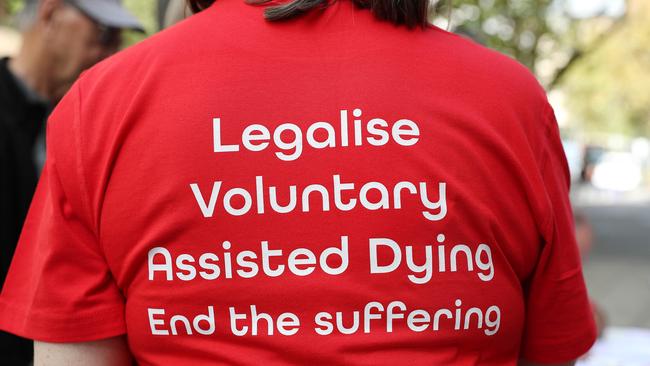Euthanasia Bill: SA’s Upper House has passed the Voluntary Assisted Dying Bill. Here’s what happens next
Moves to legalise euthanasia in SA took a historic step forward in the state parliament on Wednesday night. So, what’s it all about? What happens next?
SA News
Don't miss out on the headlines from SA News. Followed categories will be added to My News.
Members of South Australia’s Upper House made history on Wednesday night when they voted to pass a Bill that would legalise euthanasia in this state.
It is the furthest such a Bill has progressed in SA’s parliament after 16 previous failed attempts. So who’s pushing for the legislation and why?
And what needs to happen from here for the Bill to be passed into law?
We set out the key facts and answer the most commonly asked questions.
WHAT HAPPENED I THE UPPER HOUSE?
South Australia’s Upper House, the Legislative Council, voted to pass the Voluntary Assisted Dying Bill, which was introduced by Labor MLC Kyam Maher.
WHY IS THE UPPER HOUSE VOTE SO SIGNIFICANT?
It is the furthest a Bill to legalise euthanasia in South Australia has progressed through the state parliament after the failure of 16 pieces of law reform in the past 25 years. The first attempt was made in 1995.

WHAT DOES THE BILL PROPOSE TO DO?
If passed into law, the Bill would make it legal for South Australians to access assisted dying, or voluntary euthanasia.
WHO WOULD BE ABLE TO ACCESS ASSISTED DYING?
Euthanasia would be available to people who have lived in South Australia for at least a year, who are at least 18 years of ago and who have been diagnosed with an incurable disease, illness or medical condition that is advanced, progressive and which is expected to cause death within weeks or months. Their condition must also be causing suffering that cannot be relieved.
WHY ARE SOME PEOPLE IN FAVOUR OF THE BILL?
Proponents of voluntary assisted dying argue that people should have the right to choose to end their own suffering, particularly when all other medical options have been exhausted.
WHY ARE SOME PEOPLE AGAINST THE BILL?
There are a wide range of arguments against the legalisation of euthanasia. SA-Best MLC Frank Pangallo voted against the Bill, arguing that it would set society on “a dangerous path” and amounted to “state sanctioned suicide”. Senior SA neurologist Dr Tim Kleinig said he feared the move would be “the first step to an expansive euthanasia regime down the track”. Labor MLC Clare Scriven voted against the Bill saying there was clear evidence safeguards could be diluted once euthanasia came into law.
WHAT SAFEGUARDS WOULD BE PUT IN PLACE?
This week’s vote by the Upper House features 68 safeguards governing how euthanasia could be accessed and administered. One of those key amendments ensures that doctors involved in an assisted dying case are not family members of the patient or would not stand to benefit, in any way, from the person’s death. Another safeguard would prohibit health professionals from raising the issue of euthanasia with their patients. Voluntary assisted dying would need to be approved by two separate doctors.
WHERE ELSE IS EUTHANASIA LEGAL IN AUSTRALIA?
If the Bill is passed into law, South Australia would be the fourth state in Australia to legalise euthanasia, behind Victoria, Western Australia and Tasmania. SA’s laws are being modelled on those in Victoria.
WHAT HAPPENS FROM HERE?
The Bill must be passed by SA’s Lower House, the House of Assembly, before it can be gazetted into law. Premier Steven Marshall on Thursday moved to “progress debate on this legislation immediately”, adding that “the community expects parliament to act swiftly and decisively on issues that impact them”. The Premier said he would be moving to allocate government business time to debate the legislation. The House is expected to debate it next Tuesday. MPs will be permitted to exercise a conscience vote. If passed, the laws would take 12-24 months to come into effect.





